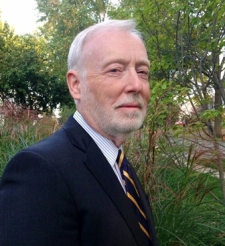UPDATED INFORMATION!
Prosecuting Attorney Joe Gagnon And Attorney Mary C. O’Connell Guilty of Covering Up Police Brutality https://richardboydenreport.wordpress.com/2017/09/28/prosecuting-attorney-joe-gagnon-and-attorney-mary-c-oconnell-guilty-of-covering-up-police-brutality/
https://richardboydenreport.wordpress.com/2017/09/28/exposing-attorneys-and-their-rouge-cops-who-withold-and-doctor-evidence/
Stewart et al v. Speiser et al
Police corruption

March 8, 2017
Darrin Jones Named Special Agent in Charge of the Kansas City Division

Mr. Jones…are you going to do your job or not?
Mr. Jones, a native of Nebraska, entered on duty with the FBI in 1997, and began his career in the Salt Lake City Division, where he investigated international drug trafficking, cybercrime, and helped lead the counterterrorism preparations for the 2002 Olympics.
Throughout his career, Mr. Jones has held leadership positions in the FBI’s Office of Congressional Affairs, the Operational Technology Division, the Albuquerque Division, and the Anchorage Division.
Mr. Jones assumes his new role in early March.
Meet the U.S. Attorney Tom Larson

Acting U.S. Attorney Tom Larson is the top-ranking federal law enforcement official in the Western District of Missouri, which includes Kansas City, St. Joseph, Columbia, Jefferson City, Springfield and Joplin.
The office is responsible for prosecuting federal crimes in the district, including crimes related to terrorism, public corruption, child exploitation, firearms, and narcotics. The office also defends the United States in civil cases and prosecutes civil claims for the United States.
FBI Civil Rights What We Investigate
Color of Law Violations
U.S. law enforcement officers and other officials like judges, prosecutors, and security guards have been given tremendous power by local, state, and federal government agencies—authority they must have to enforce the law and ensure justice in our country. These powers include the authority to detain and arrest suspects, to search and seize property, to bring criminal charges, to make rulings in court, and to use deadly force in certain situations.
Preventing abuse of this authority, however, is equally necessary to the health of our nation’s democracy. That’s why it’s a federal crime for anyone acting under “color of law” to willfully deprive or conspire to deprive a person of a right protected by the Constitution or U.S. law. “Color of law” simply means the person is using authority given to him or her by a local, state, or federal government agency.
Excessive force: In making arrests, maintaining order, and defending life, law enforcement officers are allowed to use whatever force is “reasonably” necessary. The breadth and scope of the use of force is vast—from just the physical presence of the officer…to the use of deadly force. Violations of federal law occur when it can be shown that the force used was willfully “unreasonable” or “excessive.”
False arrest and fabrication of evidence: The Fourth Amendment of the U.S. Constitution guarantees the right against unreasonable searches or seizures. A law enforcement official using authority provided under the color of law is allowed to stop individuals and, under certain circumstances, to search them and retain their property. It is in the abuse of that discretionary power—such as an unlawful detention or illegal confiscation of property—that a violation of a person’s civil rights may occur.
Fabricating evidence against or falsely arresting an individual also violates the color of law statute, taking away the person’s rights of due process and unreasonable seizure. In the case of deprivation of property, the color of law statute would be violated by unlawfully obtaining or maintaining a person’s property, which oversteps or misapplies the official’s authority.
The Fourteenth Amendment secures the right to due process; the Eighth Amendment prohibits the use of cruel and unusual punishment. During an arrest or detention, these rights can be violated by the use of force amounting to punishment (summary judgment). The person accused of a crime must be allowed the opportunity to have a trial and should not be subjected to punishment without having been afforded the opportunity of the legal process.
Tampering with evidence is closely related to the legal issue of spoliation of evidence, which is usually the civil law or due process version of the same concept (but may itself be a crime). Tampering with evidence is also closely related to obstruction of justice and perverting the course of justice, and these two kinds of crimes are often charged together. The goal of tampering with evidence is usually to cover up a crime.
By law enforcement
Spoliation of Evidence
When a crucial document is lost by spoliation, the courts may try to infer the original information by applying spoliation inference rule. Spoliation inference rule is a negative evidential inference. When applying the rule, courts will review the altered document with inference against the spoliator and in favor of the opposing party. The theory behind spoliation inference is that when a party has destroyed evidence, it shows that the party had consciousness of guilt or other reasons to avoid evidence. Hence, the court will conclude that the evidence was not in spoliation’s favour.
Spoliation of evidence is an act that is prohibited by American Bar Association’s Model Rules of Professional Conduct, Rule 37 of Federal Rules of Civil Procedure, and Title 18 United States Code. Sanctions for spoliation are preventative, punitive and remedial in nature. Separate tort actions are also permitted.
American Bar Association Rule 3.4 prohibits a lawyer from destroying or assisting another in destroying evidence pertaining to a case. Likewise Title 18 of United States Code Sections 1503, 1510, 1512 and 1519 prohibits a party from destroying or assisting another in destroying evidence, and provides for criminal prosecution against the wrongdoer. Under Title 18 United States Code Section 1519, a wrongdoer can be fined in huge amounts and imprisoned up to 20 years.
Under Federal Rules of Civil Procedure Rule 37 possible sanctions are as follows:
- dismissal of the wrongdoer’s claim;
- entering judgment against the wrongdoer;
- excluding expert testimony; and
- application of adverse inference rule.
Additionally, Rule 37 imposes fines on the wrongdoer.
18 U.S. Code § 1519 – Destruction, alteration, or falsification of records in Federal investigation
N.O. FBI agent accuses Justice Dept. of ‘systemic corruption http://www.wwltv.com/news/investigations/no-fbi-agent-accuses-justice-dept-of-systemic-corruption/424349390
BuzzFeed News reviewed 62 incidents of video footage contradicting an officer’s statement in a police report or testimony. From traffic stops to fatal force, these cases reveal how cops lie — and why they get away with it. https://www.buzzfeed.com/albertsamaha/blue-lies-matter?utm_term=.ooBZyalzvB#.suB8AlPqB3

Major Kevin Freeman NKCPD FBI trained expert in “altering videos”
http://nmindepth.com/2016/11/18/affidavit-abq-police-have-illegally-deleted-altered-videos-of-shootings/
A manual for Evidence.com published online last month by Taser supports many of Chavez’s claims about the process for editing or deleting videos.
Anyone with administrator privileges at an agency can delete videos, the manual shows. Those clips remain in a queue for seven days. And administrators can “mask” entire videos or portions of them using four different “blur levels.” Audio also can be removed.
Affidavit: ABQ police have illegally deleted, altered videos of shootings
The meeting came just three days after two APD officers shot James Boyd in the foothills at the eastern edge of the city, killing the homeless man who had been illegally camping in city open space.
Control+Assault+Delete: When Cops Destroy Video Evidence
http://www.theroot.com/control-assault-delete-when-cops-destroy-video-evidenc-1794316875
21. Specifically, I know that from 2013 to the spring of 2014, the primary person in the Criminal Forensic Unit of the City of Albuquerque Police Department, Frank Pezzano, knew how to encrypt and/or erase Taser lapel camera video with a possible result being lapel camera video would either appear blank, encrypted, altered or corrupted when produced to media and/or attorneys …
Feds investigate claims APD altered video
APD has said it edits videos to clarify them, but does not tamper or try to hide evidence. It also said it maintains original copies of all video evidence. But little detail has emerged about its editing capabilities or practices.
Frank Pezzano, an Albuquerque police detective and video technician, said police use multiple editing software programs. He said at least one software system allows officers to edit video evidence in a way that he compared to “Photoshop.”
He explained the software system during a sworn deposition testimony that was part of the lawsuit brought against the city over the police shooting of 19-year-old Hawkes, who was shot in April 2014 near Wyoming and Zuni.
He said he’s used a program called VideoFOCUS Pro and other software systems and compared VideoFOCUS Pro to Photoshop, a computer program that allows people to add or subtract images from photographs and videos.”
How to Prosecute Abusive Prosecutors
WHEN it comes to poor people arrested for felonies in Scott County, Miss., Judge Marcus D. Gordon doesn’t bother with the Constitution. He refuses to appoint counsel until arrestees have been formally charged by an indictment, which means they must languish in jail without legal representation for as long as a year.
Judge Gordon has robbed countless individuals of their freedom, locking them away from their loved ones and livelihoods for months on end. (I am the lead lawyer in a class-action suit filed by the American Civil Liberties Union against Scott County and Judge Gordon.) In a recent interview, the judge, who sits on the Mississippi State Circuit Court, was unapologetic about his regime of indefinite detention: “The criminal system is a system of criminals. Sure, their rights are violated.” But, he added, “That’s the hardship of the criminal system.”
Former St. Louis Prosecutor Admits To Covering Up Brutal Police Beating Of A Suspect

Clinton County Prosecutor Joe Gagnon Guess who is coming after this boy and the Judges of the 43rd Circuit Court. Say ACLU! It serves Caldwell, Clinton, Daviess, DeKalb and Livingston counties. This “Nepotistic Judicial Mafia Circuit Court runs a “rico make LOTS of money holding folks in jail in Clinton County ACLU suing Mississippi county while men are stuck in jail | Fox News
https://ballotpedia.org/Missouri_43rd_Judicial_Circuit_Court
Judges
Associate judges
- Caldwell: Jason Kanoy[2]
- Clinton: Teresa Bingham[3]
- Daviess: Daren L. Adkins[4]
- DeKalb: J. Bartley Spear[5]
- Livingston: Jim Valbracht[6]
Former St. Louis Assistant Prosecutor Pleads Guilty to Concealing Police Officers’ Assault of Arrestee
Worrell admitted that she failed to notify authorities that on July 22, 2014, police officers assaulted an arrestee in their custody, and that she took an affirmative step to conceal the felony. Worrell also admitted that she filed charges without disclosing knowledge of the assault to her colleagues, supervisors or the judge assigned to setting a bond. She admitted that she allowed the charges to stand despite later learning that the facts that made out the charge of attempted escape were fabricated to cover for injuries the arrestee sustained during the assault.
“Prosecutors are trusted to exercise discretion in enforcing the law and are charged above all with doing justice in a fair and impartial manner,” said Principal Deputy Assistant Attorney General Gupta. “In this instance, the defendant ran afoul of her obligation to uphold the Constitution, and must therefore be held to answer for her actions.”
“An officer of the court allowed her friendship with a police officer to eclipse her public obligation to uphold justice,” said U.S. Attorney Dickinson. “This remains an ongoing investigation that extends farther than this defendant’s role in covering up an egregious civil rights violation.”
Former St. Louis Prosecutor Admits To Covering Up Brutal Police Beating Of A Suspect
Kiss your career GOODBYE White!
Clay Country Prosecutor Dan White
Former St. Louis Assistant Prosecutor Pleads Guilty to Concealing Police Officers’ Assault of Arrestee
Worrell admitted that she failed to notify authorities that on July 22, 2014, police officers assaulted an arrestee in their custody, and that she took an affirmative step to conceal the felony. Worrell also admitted that she filed charges without disclosing knowledge of the assault to her colleagues, supervisors or the judge assigned to setting a bond. She admitted that she allowed the charges to stand despite later learning that the facts that made out the charge of attempted escape were fabricated to cover for injuries the arrestee sustained during the assault.
“Prosecutors are trusted to exercise discretion in enforcing the law and are charged above all with doing justice in a fair and impartial manner,” said Principal Deputy Assistant Attorney General Gupta. “In this instance, the defendant ran afoul of her obligation to uphold the Constitution, and must therefore be held to answer for her actions.”
“An officer of the court allowed her friendship with a police officer to eclipse her public obligation to uphold justice,” said U.S. Attorney Dickinson. “This remains an ongoing investigation that extends farther than this defendant’s role in covering up an egregious civil rights violation.”
How to Prosecute Abusive Prosecutors
Misconduct and punishment. State disciplinary authorities investigate prosecutors accused of misconduct
(1) [Threatens or causes harm to any person or property; or
(2) Uses force, threats or deception; or
(3)] Offers, confers or agrees to confer any benefit, direct or indirect, upon such witness or victim; or
[(4)] (2) Conveys any [of the foregoing] benefit, directly or indirectly, to another in furtherance of a conspiracy.
2. [A person commits the crime of “victim tampering” if, with purpose to do so, he prevents or dissuades or attempts to prevent or dissuade any person who has been a victim of any crime or a person who is acting on behalf of any such victim from:
(1) Making any report of such victimization to any peace officer, or state, local or federal law enforcement officer or prosecuting agency or to any judge;
(2) Causing a complaint, indictment or information to be sought and prosecuted or assisting in the prosecution thereof;
Court Says Cops Can’t Testify In Case After Destroying Footage Of DUI Arrest

Patrick Romine

Attorneys defending rogue NKCPD cops being turned into the American Bar and other “interested parties”!
ALL of these attorneys knew about and approved of the altering of the NKC Hospital video working with the 2 prosecuting attorneys to protect the guilty rogue cops who almost murdered Stewart!


| Defendant: Gary W. Ficken, Jr. | |
|---|---|
| Represented By: | Timothy S. Frets http://dfrglaw.com/attorneys/frets-timothy-s/ |
| Represented By: | Mary C. OConnell  |
| Represented By: | John W. Witten |
| Defendant: Christopher Kimmel | |
| Represented By: | Karen J. Halbrook |
| Represented By: | Lindsay Poehling Windham |
| Defendant: Pat Romine | |
| Represented By: | Karen J. Halbrook |
| Represented By: | Lindsay Poehling Windham |
North Kansas City Hospital hired a known sexual predator named Price who drugged a woman and stuck his fingers in her vagina while maintaining an “erect penis”. North Kansas City Hospital is owned by North Kansas City who’s employee is defended by attorney’s and Ceasar’s gets tagged which is not their fault. http://caselaw.findlaw.com/mo-court-of-appeals/1558546.html
North Kansas City Hospital Leaders Who Are Paying The Above Named Attorneys…the same attorneys who defend Ficken and others and allowed for the video to be “altered” which documented the assault of Michael S. Stewart by LE at their hospital.
Here are the executives who represent North Kansas City Hospital. Notice how many women who evidently have to no problem what takes place in their facility.





















